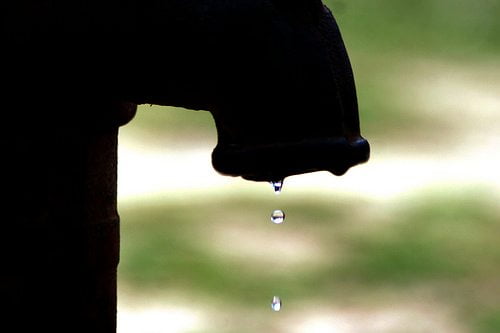

Economy
Global warming will put over 600 million people at risk of higher water scarcity
Global warming will expose an additional 668 million people worldwide to new or aggravated water scarcity, according to new research.
The study, published in the journal Environmental Research Letters, estimates that if even if current pledges to reduce greenhouse gas emissions are met, the mean global temperature will increase by around 3.5C from pre-industrial levels by the end of the century.
Today, 1.3 billion people are already living in water-scarce regions. The study calculates that a further 11% of the world’s population will be affected.
The lead author of the study, Dieter Gerten of the Potsdam Institute for Climate Impact Research, said, “Even if the increase is restricted to 2C above pre-industrial levels, many regions will have to adapt their water management and demand to a lower supply, especially since the population is expected to grow significantly in many of these regions.”
The main driver of water scarcity is shortages of rain. Increased temperatures will also lead to an increase in evapotranspiration of groundwater, which will further decrease the resources available. The anticipated increase in population will also have an impact and will affect the ratio of water demand and water availability.
The Global Sustainability Institute recently mapped the effects of global resource shortages. Water scarcity can also create or exacerbate other global issues. A report has suggested that resource scarcity may be an underlying cause for the current conflict in Syria.
The researchers also assessed the impact future climate changes may have on global terrestrial ecosystems. Gerten said, “At a global warming of 2C, notable ecosystem restructuring is likely for regions such as the tundra and some semi-arid regions.
“At global warming levels beyond 3C, the area affected by significant ecosystem transformation would significantly increase and encroach into biodiversity-rich regions. Beyond a mean global warming of 4C, we show with high confidence that biodiversity hotspots such as parts of the Amazon will be affected.”
Further reading:
Water and food shortages at the root of the Syrian crisis, claims study
UK farmers at risk of water shortages by 2020, says climate watchdog
Climate change may affect national and global security
Ranking large firms on water would help ‘drive change’
World Water Day: long-term opportunities in investing in water


 Environment12 months ago
Environment12 months agoAre Polymer Banknotes: an Eco-Friendly Trend or a Groundswell?

 Features11 months ago
Features11 months agoEco-Friendly Cryptocurrencies: Sustainable Investment Choices

 Features12 months ago
Features12 months agoEco-Friendly Crypto Traders Must Find the Right Exchange

 Energy11 months ago
Energy11 months agoThe Growing Role of Solar Panels in Ireland’s Energy Future




























